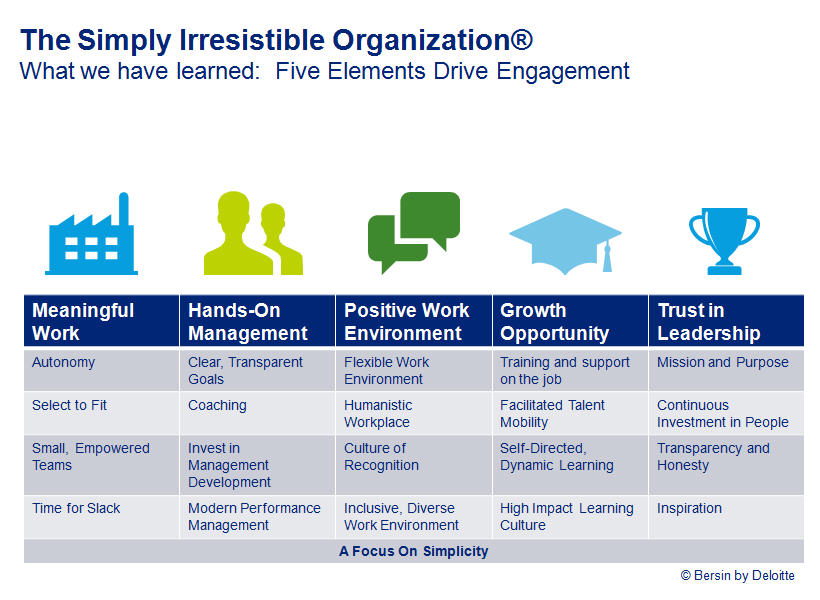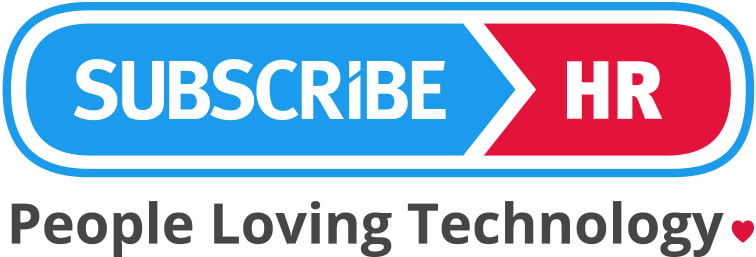It's that time of year, when we peer into the crystal ball of the future of work, and assess what the experts believe will be the key HR trends and disruptions in the coming year. As technology continues to transform the way we do business at warp speed, HR Professionals are being called upon to keep up with an increasingly challenging rate of change. The saving grace of this seemingly exponential rate of change is that HR software providers are becoming more adept at creating intuitive, easy to implement solutions and upgrades, that make it simpler than ever for end users to reap the rewards.
A look at a couple of reports from leading HR commentators reveals some common trends identified for 2016. Bersin by Deloitte released their HR Technology for 2016: 10 Big Disruptions on the Horizon reports last year. P World also released their Global HR Trends Report 2016, both of which include a plethora of well researched market intelligence about the future of HR that will start to unfold throughout this, and coming years. Josh Bersin also published an excellent article that offers extensive, intelligent, well researched and interesting insight into the future of HR and tech.
GIven that employee engagement and retention remains a global challenge, (and research by the MRI network shows that 90% of Recruiters surveyed believe that 'candidates are now in charge' – the highest this metric has been in five years), getting the HR piece right is as critical as ever. The solution is being touted as creating more transparent, collaborative, organisations by putting feedback front and centre. It is possible to enable real-time, collaborative feedback to be seen and experienced as a positive, constructive concept that can unleash innovation, solve problems, and create empowerment. However, there is some extensive education that needs to take place in the workplace around how to ensure that giving feedback is a benefit, not a detriment to workplace culture. let's be frank - most individuals, need significant coaching to be able to provide feedback in a way that creates an opening or opportunity, instead of closing down the lines of communication.
Bersin's research results advocate that it is necessary for organisational culture, process and education be re-oriented around the belief that 'feedback is a gift.'
- Feedback is a gift to give (i.e., we should give it kindly and with respect); and
- Feedback is a gift to receive (we open it carefully, take it with respect, and thank the giver).
Vendors are redesigning HR systems, particularly Performance Management solutions, to integrate values, culture, 360 degree feedback, real-time, peer-to-peer recognition, traditional performance management and rewards, to enhance employee skills, development and behaviour, in a holistic manner. Just as silos between organisational departments have been broken down and businesses now operate in a more integrated manner, silos between the different elements of managing performance, enhancing productivity, creating a great workplace culture and rewarding employees for proactively participating in making it so, will be seamlessly integrated.
Let's look at an overview of the trending headlines in HR for 2016, and what's needed to create what Josh Bersin calls ' The Simply Irresistible Organisation.'

1. Employee engagement and culture as top priority
Employee engagement and performance integrated with organisational culture becomes a top priority. HR Professionals, Managers and Leadership must take responsibility for ensuring the alignment of engagement and culture is at the top of their to-do list in 2016. This growing necessity has the potential to provide untapped benefits and those organisations willing to embrace this change will lead the way. Secondary to this theme is having the right people, in the right positions, that have the skills to lead teams, inspire them on a journey to success and on the way to creating an exemplary brand. Including learning and development as the foundation for enabling this transition will be a crucial part of the puzzle.
2. Improving the employee experience
HR Professionals have been highly focused on transformation for the last decade or so, implementing new technology to streamline processes and managing the change this created. Almost as an addendum to point 1 above, the time has come to focus on improving the Employee experience. Marketing and sales departments have to improve and develop the customer experience in order to increase market share and revenue. Employees at every level have seen this improvement from an outward looking perspective, now the time has come to see this improvement applied equally to the organisation's internal customers - their Employees. Often, each business function has implemented new processes without looking at the big picture in terms of the employee journey, and it has become a painful process between often siloed financial / HR / IT / Procurement and Benefits functions. Improving the Employee experience in a challenging environment will drive engagement and retention, and the technology to facilitate this process is more readily available.
3. Focus on wellbeing and resilience
Wellbeing and resilience continues to be a significant focus for HR Professionals and business as a whole. This means promoting physical, emotional, mental and purposeful wellbeing for employees, not just in words, but also in actions. Organisations that take a proactive approach to employee wellbeing, and then use HR solutions geared towards embedding processes, checks and balances, will be ahead of the curve from a culture perspective.
4. Data driven recruitment
Data-driven recruitment will definitely be a trend that will gain more traction in 2016. Access to data is getting easier and cheaper through new technology and professional network platforms. The talent acquisition team can now arm themselves with real-time data and become very strategic in their decision making processes. HR solutions that enable HR Professionals to build talent pools using their own data, and create their own internal Agency functionality through mining this data, enables Recruiters to enhance their understanding of the market and be more efficient.
5. Developing the human side of the business
While success in the 20th Century was driven by process, structure and encouraging people to function more like machines, success in the future requires us to amplify the human side of business. The ability to thrive in today's dynamic business environment is predicated on empowering employees to thrive as individuals and to create a workplace environment that enables them to tap into their full potential. Humans have evolved to deal with uncertainty through collaboration, cooperation and using conflict in a constructive manner, but there is a whole new level of potential yet to be tapped. Businesses need to encourage their Employees to develop mindsets and habits geared towards connection, conversation and experimentation. Curiosity is crucial: it is essential to continually question whether you are doing things simply because that's how they've always been done, and to seek new perspectives and identify potentially better solutions. Businesses also need to redefine how they view fear and failure. Most of us allow fear to control of our lives, and this gets in the way of not just our personal relationships, but those in the workplace too. The key to eliminating fear, and a means to fostering workplaces where individuals can truly be themselves and feel comfortable with failure, lies in HR Professionals, Management and Leadership developing high quotients of self-awareness and transparency, living that in word and action, then translating that organisation wide.
6. Relationships not programs
HR continues to be about building relationships rather than programs. The key skill set for future HR Professionals will be how to effectively understand and manage the impact of mergers, demergers and the challenges of globalisation. Facilitating cross-cultural, inter-generational and inter-continental communication that fosters strong relationahips is a skill that requires high aptitude. The impact of increasing levels of globalisation will have a profound, and potentially disruptive impact in the workplace if not managed with excellence.
7. Keeping the skills of your workforce up to date
In 2016, ensuring that the skills of your workforce are up to date in this fast-changing world will be more important than ever. Many companies immediately turn to an external training firm to manage this process, but it is worth thinking about the expertise and experience already in your organisation and how you can tap into this for the benefit of the rest of your team. As an example, your younger employees probably have knowledge of social media and tech enabled collaboration which an older generation might struggle with, reversing the traditional hierarchy of skills. Harnessing this type of peer-to-peer learning can be an efficient and cost effective way of increasing skills. The knowledge transferred is likely to be relevant because it is delivered by employees who know each other and who understand your organisation's culture.
8. Big data analysis
Predictive data analysis continues to remain critical to success in the current and future marketplace. We've been talking about big data for some time, but it's pretty much mission critical for organisations to mine their data and ensure it is being put to intelligent use.
9. Consolidation of businesses
It is safe to assume that the consolidation of businesses will continue and this merger and acquisition envrionment will continue to be a challenge. As such, HR effectiveness and efficiency, paired with analytics on the one hand, alongside the challenge of attracting and retaining Generation Y as businesses navigate the process of consolidation, will be key factors.
10. Reinventing performance reviews
Last, but most definitely not least, the hottest HR topic is how to reinvent performance reviews. A number of companies, including Accenture, Deloitte and others have already done it. GE is piloting a new process, and another large organisation is contemplating abolishing individual bonuses altogether. Prepare for a long overdue seismic shift in the way performance is managed.

